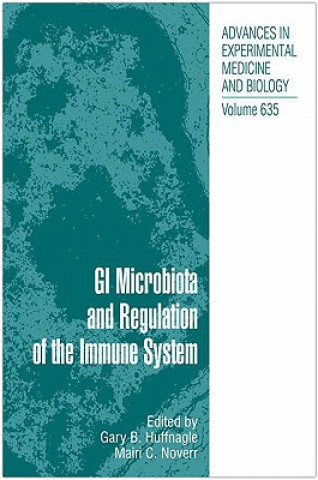
Delivery
Shopping guide





Doesn't suit? No problem! You can return within 30 days
 Gift voucher
any value
Gift voucher
any value
You won't go wrong with a gift voucher. The gift recipient can choose anything from our offer.
GI Microbiota and Regulation of the Immune System
 English
English
 446 b
446 b
30-day return policy
You might also be interested in


The idea that the microbial communities within the GI tract have a profound influence on general human health actually originated with Russian scientist Elie Metchnikov at the turn of the last century. Also known as the father of immunology , Metchnikov believed that putrefactive bacteria in the gut were responsible for enhancing the aging process. He theorized that ingestion of healthy bacteria found in fermented foods could counteract toxic bacteria and was the key to good health. His theories concerning good bacteria and health can be found in his treatise The Prolongation of Life: Optimistic Studies . These writings prompted Japanese scientist Minoru Shirota to begin investigation of how fermentative bacteria improve health. He succeeded in isolating a strain of Lactobacillus that could survive passage through the intestine, while promoting a healthy balance of microbes. The Shirota strain is still used today in the fermented beverage Yakult. It is clear from a commercial standpoint that these ideas have inspired the development of a probiotic industry, which has expanded greatly in the U.S. over the past 5-10 years. Likewise, scientific studies investigating the microbiota and the immune system have increased significantly in recent years. This increase in research is also due to advances in technologies that enable the investigation of large microbial communities, a resurgence in gnotobiotic animal research, and improved methods for molecular analysis of probiotic bacterial species. Our interest in this area stems from our laboratory observations indicating that antibiotics and fungi can skew microbiota composition and systemic immune responses. Our initial base of references upon which to develop further hypotheses concerning the mechanisms involved in microbiota regulation of immune responses was limited. However, in presenting the research at national scientific meetings and at universities across the country, the feedback and interest were overwhelming. It became clear that a book dedicated to current trends in investigating the GI microbiota was warranted. Dissection of the relationship between the microbiota and the immune system is currently being approached from a variety of angles that we have sought to incorporate into this book. This book opens with two general reference chapters, which provide an overview of current knowledge of gastrointestinal immunology and the commensal microbiology of the gut. Next are two chapters dedicated to current methodologies used to investigate the microbiota and host: molecular analysis of microbial diversity and gnotobiotic research. Both positive and negative interactions between the microbiota and the immune system can take place in the gut, with chapters dedicated to probiotics and intestinal diseases associated with unhealthy microbiota. Environmental factors play an enormous role in shaping the microbiota composition. Host, microbial, and dietary factors take part in a complex interplay, which provides many distinct and diverse research subjects. We have included a chapter discussing diet, functional foods, and prebiotics, which are dietary supplements used to specifically enhance the growth of beneficial members of the microbiota.
About the book
 English
English




 How to shop
How to shop




























